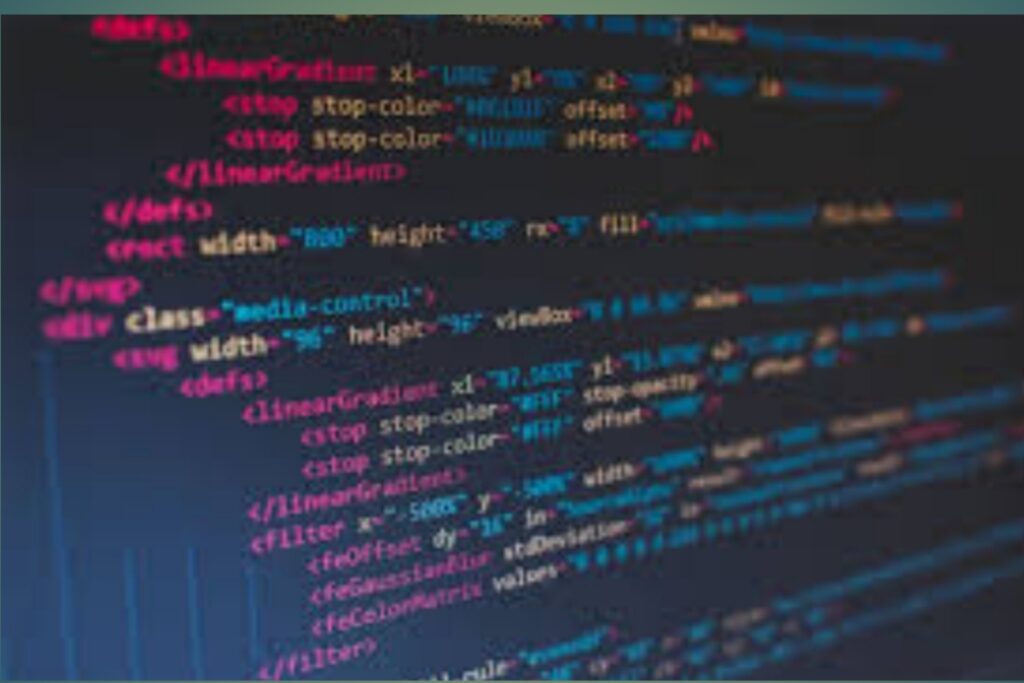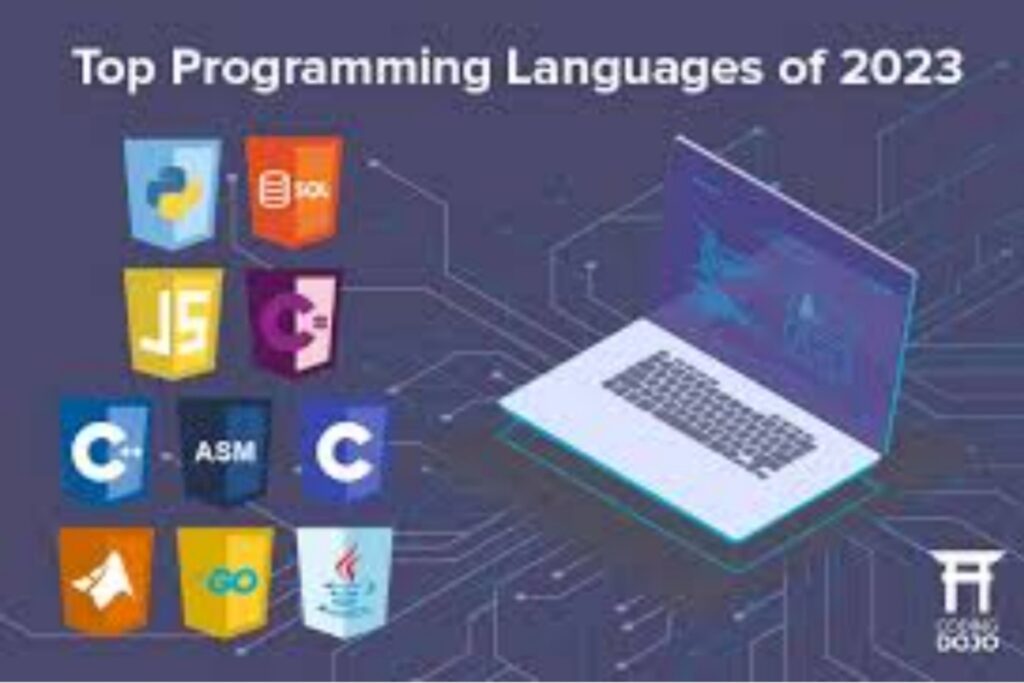
What is Coding?
Coding, also known as programming, is the process of creating instructions for computers to execute. It involves writing scripts or codes that dictate how software, applications, and systems should function. In today’s digital age, coding is a crucial skill that powers everything from simple websites to complex algorithms and artificial intelligence. In this blog, we’ll delve into the fundamentals of coding, its history, the different programming languages, and why learning to code is becoming increasingly important.
What is Coding?
The Basics of Coding
At its core, coding is the act of translating human instructions into a language that computers can understand. Computers operate on binary code, a series of 0s and 1s that represent on and off states. However, writing in binary is impractical for humans, so programming languages were developed as a more user-friendly way to communicate with machines.
What is Coding?

A programming language
is a formal language comprising a set of instructions that produce various kinds of output. These instructions are written in code, which the computer’s processor can execute to perform specific tasks. For instance, a simple piece of code can instruct a computer to add two numbers, while a more complex program can power a video game or manage an entire database.
What is Coding?

A Brief History of Coding
The history of coding dates back,to the early 19th century when Ada Lovelace,
often regarded as the first computer programmer, worked on algorithms for Charles Babbage’s Analytical Engine.
However, coding, as we know it today, began to take shape in the mid-20th century with the development of the first programming languages.I
n 1957, the Fortran language was introduced, primarily for scientific and engineering calculations. Shortly thereafter, COBOL (Common Business-Oriented Language) was developed for business applications. These early languages were foundational, but they were often cumbersome and difficult to learn.
The 1960s and 1970s saw the emergence of more accessible languages like BASIC, which made programming more approachable for beginners. The development of C in the early 1970s laid the groundwork for many modern languages, including C++, Java, and Python. Today, there are hundreds of programming languages, each designed for specific tasks and industries.
Types of Programming Languages

Programming languages can be broadly categorized into several types, each serving different purposes:
- Low-Level Languages
These are closer to machine code and include Assembly and Machine Language. They offer high performance but require detailed knowledge of the hardware.
2.High-Level Languages
These are more abstract and easier to use. They include languages like
Python,
Java,
C++.
High-level languages are more human-readable and require less knowledge of the hardware, making them ideal for most programming tasks.
3. Scripting Languages
These are used for writing scripts that automate tasks. Common scripting languages include JavaScript, Python, and Ruby.
4. Markup Languages
While not traditional programming languages, markup languages like HTML and XML define the structure and presentation of data. HTML is crucial for web development, dictating the layout of web pages.
5. Database Languages
These are specialized languages for managing and querying databases. SQL (Structured Query Language) is the most widely used database language.
6. Functional Languages
These languages focus on mathematical functions and include languages like Haskell and Lisp. They are often used in academic research and complex mathematical computations.
Why is Coding Important?
The importance of coding cannot be overstated in today’s digital world. Here are some key reasons why coding is a valuable skill:
- Problem-Solving Skills
Coding teaches you how to break down complex problems into smaller, manageable parts. This analytical thinking is valuable in various fields beyond programming.
2. Career Opportunities
The demand for skilled programmers is high, with job opportunities in software development, data science, cybersecurity, and more. Coding skills can open doors to lucrative careers in the tech industry.
3. Automation and Efficiency
Coding allows you to automate repetitive tasks, saving time and reducing errors. This is particularly useful in fields like data analysis and business operations.
4. Creativity
Coding is a form of digital creativity. It enables you to build websites, develop apps, create games, and even compose music. The possibilities are endless.
5. Digital Literacy
Understanding coding helps you better understand the digital world. It empowers you to not only consume technology but also create it.
6. Interdisciplinary Applications
Coding has applications in various fields, including healthcare, finance, education, and entertainment. For example, doctors use software to analyze medical images, while educators use online platforms for teaching.
Learning to Code
If you’re interested in learning to code, there are numerous resources available to help you get started. Here are some steps to guide you on your coding journey:
- Choose a Programming Language
Start with a beginner-friendly language like Python, which is known for its simplicity and versatility. Other good options include JavaScript for web development and Java for general-purpose programming.
2. Online Courses and Tutorials
Websites like Codecademy, Coursera, and Khan Academy offer comprehensive courses on various programming languages and concepts. These platforms provide interactive exercises and quizzes to reinforce your learning.
3. Practice Coding
The best way to learn coding is by doing. Start by building simple projects, such as a calculator or a personal blog. As you gain confidence, take on more complex projects.
4. Join Coding Communities
Online forums and communities like Stack Overflow and GitHub are great places to ask questions, share your projects, and learn from others. Engaging with these communities can provide valuable insights and support.
5. Read Books and Documentation
Books like “Automate the Boring Stuff with Python” and “JavaScript: The Good Parts” offer in-depth knowledge and best practices. Reading official documentation can also help you understand the nuances of a language.
6. Stay Updated
The tech industry is constantly evolving. Keep up with the latest trends and technologies by following blogs, attending webinars, and participating in coding challenges.
The Future of Coding
As technology continues to advance, the role of coding will only become more integral to our lives. Emerging fields like artificial intelligence, blockchain, and quantum computing are expanding the boundaries of what’s possible. Moreover, the rise of low-code and no-code platforms is making programming accessible to a broader audience, allowing even non-programmers to create applications and solutions.However, while these platforms simplify coding, a deep understanding of programming concepts remains invaluable. As automation and machine learning take on more tasks, human creativity and problem-solving skills will be more critical than ever.
Conclusion
In summary, coding is the What is Coding? of the digital world. It empowers us to create, innovate, and solve problems in ways that were once unimaginable. Whether you’re looking to start a career in tech, automate tasks, or simply understand the technology around you, learning to code is a worthwhile endeavor. So, what is coding? It’s a gateway to endless possibilities and a skill that can shape the future. Start your coding journey today and unlock the power of programming.
